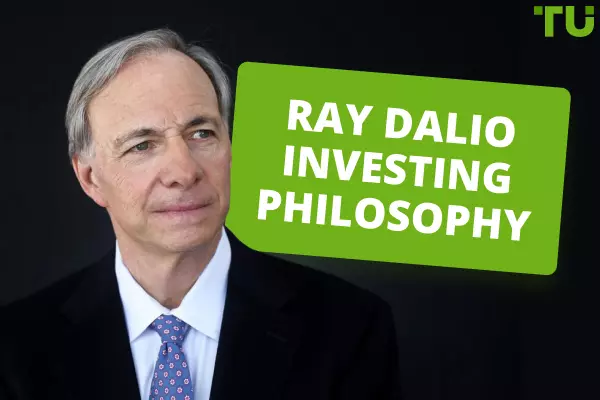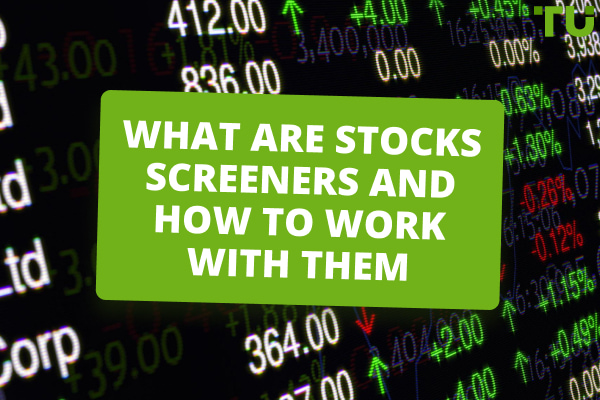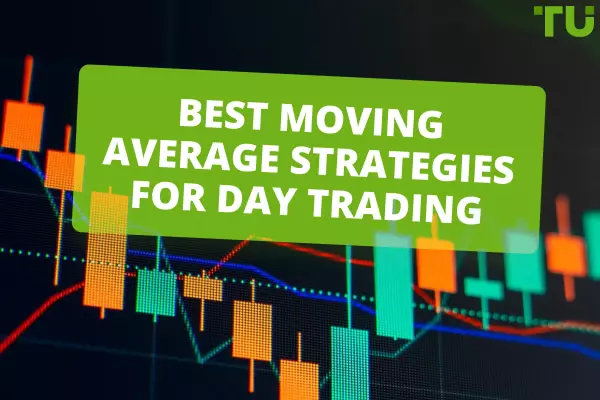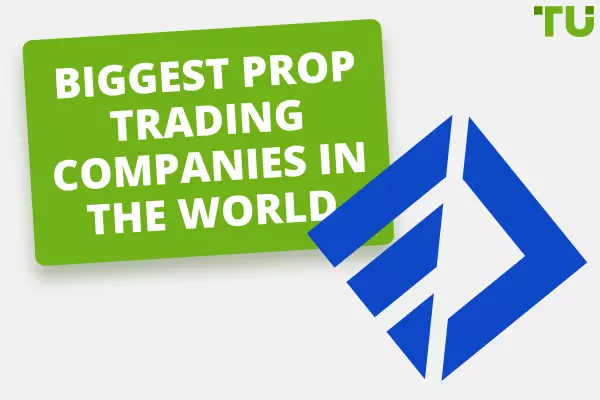How to Determine If Your Broker Is Scamming You
The main signs of a fraud broker: lack of a license, negative reviews, persistent offers to deposit as much money as possible, aggressive marketing campaign, interference in the operation of the trading platform, refusal or delays in withdrawing money, very loyal trading conditions.
Forex and the stock market are attractive investment opportunities, but they can also be dangerous. Scammers who operate in this industry often use complex schemes to defraud investors and steal their money.
The main signs of a scam broker
If you are thinking about starting to trade on Forex or the stock market, it is important to know how to spot a scam broker. In this article, we will look at some common signs that may indicate that a broker is not reliable.
Lack of a license
In most countries, there are regulatory bodies that oversee the activities of Forex and stock brokers. These bodies issue licenses to brokers that meet certain requirements, such as having a minimum amount of capital, transparency, and investor protection.
If a broker does not have a license from one of these bodies, it could be a sign that the broker is a scam. Scammers often don't get a license because they don't want to follow the rules and regulations that protect investors.
Examples of regulators:
Commodity Futures Trade Commission (CFTC) in the United States.
Securities and Exchange Commission (SEC) in the United States.
Financial Conduct Authority (FCA) in the United Kingdom.
European Securities and Markets Authority (ESMA).
Unrealistic promises
Scammers often make unrealistic promises to investors to get their attention. They may promise high returns with little risk or guarantee that you won't lose money.
If a broker makes such promises, it should raise a red flag. In the world of finance, there are no guaranteed ways to get high returns with little risk. Any broker who makes such promises is likely trying to scam you.
Examples of unrealistic promises:
Guaranteed returns.
Guaranteed no losses.
The ability to get rich quickly.
The ability to get high returns with no effort.
Complicated trading process
Scammers often use complicated trading processes to confuse investors. They may use confusing language or complex trading strategies to make the trading process more difficult to understand.
If a broker uses a complicated trading process, it should raise a red flag. It could be a sign that the broker is trying to hide something from you.
Examples of complicated trading processes:
Use of confusing language or jargon.
Providing complex trading strategies that are difficult to understand.
Requiring investors to undergo training on complex trading strategies.
High fees
Scammers often charge high fees for their services. They may charge a commission for opening an account, for trading, for withdrawing funds, or for other services. If a broker charges high fees, it could be a sign that the broker is trying to make money off of you, not help you make money.
Examples of high fees:
Account opening fee of over $500.
Trading commission of over 1,5 pips.
Withdrawal fee of over 3%.
Unavailable information
Scammers often do not provide investors with the necessary information. They may withhold information about their financial performance, about their employees, or about their trading systems. If a broker does not provide investors with the necessary information, it could be a sign that the broker is hiding something.
Examples of unavailable information:
Lack of information about the broker's financial performance.
Lack of information about the broker's employees.
Lack of information about the broker's trading systems.
Online reviews
Read online reviews about the broker before you start trading. If you see many negative reviews, it could be a sign that the broker is not reliable. Scammers often receive negative reviews from investors who have lost money.
Examples of negative reviews:
Reviews that say the broker does not pay out money.
Reviews that say the broker scams investors.
Reviews that say the broker does not provide quality services.
Excessive aggressiveness
Scammers often use aggressive sales tactics to lure investors in. They may call you on the phone, send you emails, or send you personal messages to try to get you to deposit money. If a broker uses excessive sales tactics, it could be a sign that the broker is trying to scam you.
Examples of excessive sales tactics:
The broker calls you on the phone or sends you emails without your permission.
The broker promises you high returns with no effort.
The broker demands that you deposit money immediately.
Lack of control
Scammers often do not have control over their trading systems. They may use trading systems that do not work or that are specifically designed to scam investors.
Examples of lack of control:
The broker uses trading systems that have a poor reputation.
The broker refuses to provide information about its trading systems.
The broker cannot explain how its trading systems work.
Lack of accountability
Scammers often are not accountable for their actions. They may have complex clauses in their contracts that release them from liability for investor losses.
Examples of lack of accountability:
The broker has a clause in its contract that releases it from liability for investor losses.
The broker refuses to answer investor questions about its activities.
The broker does not cooperate with regulatory authorities.
If you see one or more of these signs, it may be a sign that the broker is a scam.
Before you deposit money into any brokerage account, be sure to do your due diligence and make sure that the broker is reputable.
Choose legal and reliable brokers


How to recognize a fraudulent broker - tips for beginners
Here are some additional tips that can help you avoid Forex or stock market scams:
Do not invest in companies that do not have a license from a regulatory body.
Do not invest in companies that use a complicated trading process.
Do not invest in companies that charge high fees.
Do not invest in companies that do not provide investors with the necessary information.
Read online reviews about the broker.
Avoid brokers that do not have control over their trading systems.
Do not invest in companies that are not transparent in their activities.
Avoid brokers that do not take responsibility for their actions.
Additional tips for protecting yourself from scams
Do your research
Before you start trading with a broker, be sure to do your research and make sure the broker is reputable. You can find information about the broker on its website, online, and from friends or family.
Don't believe promises of high returns
Remember that there are no guaranteed ways to get high returns in the world of finance. If a broker promises you high returns, it should raise a red flag.
Don't invest large sums of money
If you're not sure about the reliability of a broker, don't invest large sums of money. Start with small amounts and increase them as you become more confident in the broker.
Be wary of brokers who use aggressive sales tactics
Scammers often use aggressive sales tactics to lure investors in. If a broker calls you on the phone, sends you emails, or sends you personal messages to try to get you to deposit money, it should raise a red flag.
Be wary of brokers who offer deals that seem too good to be true
If a broker offers you a deal that seems too good to be true, it could be a sign that it's a scam. Be careful and don't agree to such deals.
By following these tips, you can help protect yourself from Forex scams or stock market scams.
What to do if the broker is a scammer?
If you've been contacted by a scam broker, it's important to take action to protect yourself and your money as soon as possible.
Here are some tips on what to do in this situation:
Don't deposit any additional funds. If you've already deposited money into the account, don't deposit any additional funds until you're sure the broker is legitimate. Scammers often pressure investors to deposit more and more money, promising high returns. However, once you've deposited all of your money, the broker may simply disappear.
Try to get your money back. If you've already lost money, try to get it back through the courts or through regulatory authorities. This can be difficult, but it is sometimes possible. If you've filed a lawsuit, it's important to gather as much evidence as possible of the scam. This may include correspondence with the broker, screenshots of the broker's website, and other documents.
File a complaint with the appropriate authorities. File a complaint with regulatory authorities in your country or in the country where the broker is registered. This will help protect other investors from fraud.
Conclusion
By following these tips, you can help protect yourself from Forex or stock market scams. It's important to remember that there are no guaranteed ways to get high returns in the financial world. If a broker promises you high returns, it could be a sign that they're a scammer. Be careful and do your research on a broker before investing your funds.
FAQs
What to do if scammed by a broker?
If you suspect you have been scammed by a broker, stop all transactions with them and do not deposit any additional funds. Try to recover your money through the courts or through regulatory authorities. If you have filed a lawsuit, it is important to gather as much evidence of the scam as possible.
Are Forex brokers honest?
Not all Forex brokers are honest. Some Forex brokers are scammers who promise high returns with little effort. To avoid being scammed, it is important to do your research on a broker before depositing funds.
Where can I check if a Forex broker is legit?
You can check if a broker is regulated by visiting the website of the regulator in your country. You can also read reviews about the broker online.
Are there fake Forex brokers?
Yes, there are fake Forex brokers. They often use aggressive sales tactics to lure investors in. To avoid being scammed, it is important to do your research on a broker before depositing funds.
Glossary for novice traders
-
1
Broker
A broker is a legal entity or individual that performs as an intermediary when making trades in the financial markets. Private investors cannot trade without a broker, since only brokers can execute trades on the exchanges.
-
2
Trading
Trading involves the act of buying and selling financial assets like stocks, currencies, or commodities with the intention of profiting from market price fluctuations. Traders employ various strategies, analysis techniques, and risk management practices to make informed decisions and optimize their chances of success in the financial markets.
-
3
Investor
An investor is an individual, who invests money in an asset with the expectation that its value would appreciate in the future. The asset can be anything, including a bond, debenture, mutual fund, equity, gold, silver, exchange-traded funds (ETFs), and real-estate property.
-
4
Trading system
A trading system is a set of rules and algorithms that a trader uses to make trading decisions. It can be based on fundamental analysis, technical analysis, or a combination of both.
-
5
Forex Trading
Forex trading, short for foreign exchange trading, is the practice of buying and selling currencies in the global foreign exchange market with the aim of profiting from fluctuations in exchange rates. Traders speculate on whether one currency will rise or fall in value relative to another currency and make trading decisions accordingly.
Team that worked on the article
Alex Smith is a professional day trader for a proprietary trading firm within the foreign exchange (forex) and crypto markets. His area of expertise is day trading and swing trading within the 15min-4hr time frames for both the London and NY open.
Dr. BJ Johnson is a PhD in English Language and an editor with over 15 years of experience. He earned his degree in English Language in the U.S and the UK. In 2020, Dr. Johnson joined the Traders Union team. Since then, he has created over 100 exclusive articles and edited over 300 articles of other authors.
Mirjan Hipolito is a journalist and news editor at Traders Union. She is an expert crypto writer with five years of experience in the financial markets. Her specialties are daily market news, price predictions, and Initial Coin Offerings (ICO).









